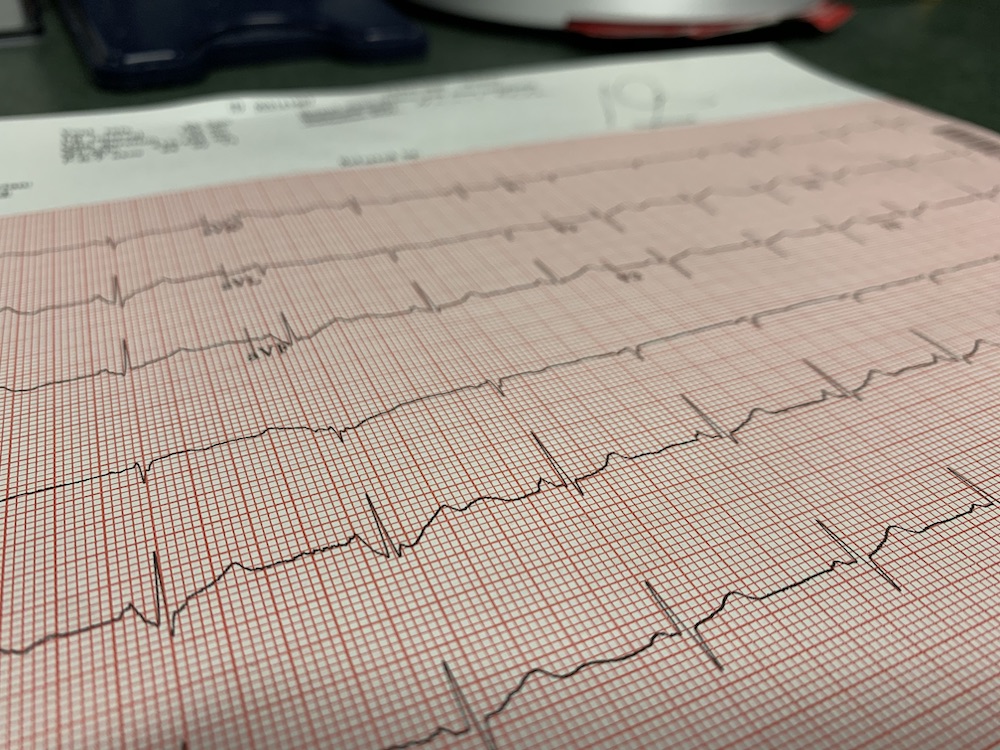Electrocardiogram
(ECG / EKG)
An electrocardiogram (also known as an ECG or EKG) is a recording of the electrical signal that arises from the heart. It is a harmless test that provides valuable information about the heart’s structure and rhythm. It can be used to diagnose heart attacks, enlargement of the heart’s chambers, arrhythmias (abnormal heart rhythms), and more.

More Details
How does an ECG work?
The test is performed in the office, usually at the start of the consultation, and takes approximately 5-10 minutes. A nurse or medical assistant will ask you to remove your shirt and then place twelve small stickers (also known as electrodes) on your chest, arms, and legs. A machine will then be connected to the stickers, and you will be asked to hold still for approximately ten seconds. The machine will print out the results, and then the stickers will be removed from your skin.
Is it safe?
There are no significant risks associated with an ECG. A tiny fraction of people may experience mild skin irritation from the stickers. There is no radiation or other long-term risk associated with this test.
How do I get the results?
The results will be provided during your consultation.
